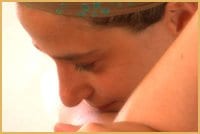Denmark, Switzerland, Austria, Iceland, Australia and Canada, according to Forbes magazine, rank high on the list of the planet’s happiest nations.
Lebanon and South Africa, in clear contrast, do not.
“There is extreme risk to your security,” a New Zealand governmental website warns potential travellers to Lebanon, while UNICEF estimates that on average almost 1,000 South Africans die from AIDS every day.
The two parts of a sobering documentary double bill, The Beirut Apartment and Darling:
The Pieter-Dirk Uys Story, present us with intriguing portraits of those two unhappy places from a queer perspective.
Approaching his examination of Beirut, director Daniele Salaris opted to rent an apartment that would act as a safe space in which his subjects could express their views about being gay in a strife-torn and fractured society with seemingly unfixable religious and cultural differences.
It’s also a place where homosexuality “can be considered criminal” by law, is a cause for profound family dishonour, and is commonly understood as being equivalent to prostitution.
In short, if you’re gay you’ll burn in hell and bring great shame to your family while you’re alive.
In such an oppressive environment, it’s no surprise to hear words like “fear,” “double life,” “torture,” and “worthless” uttered by Salaris’ interviewees. The bravery of these individuals to assert their rights is nothing short of astounding.
To offer visual relief from the monotony of single room conversations, Salaris takes his camera on brief surreal forays through the city, catching glimpses of corpses, rubble, checkpoints, refugee camps and metal barricades alongside happier emblems of contentment like parks, bakeries and boutiques.
While apartheid and AIDS are the sombre historical background to director Julian Shaw’s Darling, its real purpose is celebrating Pieter-Dirk Uys —better known by his drag persona, Mrs Evita Beziudenhout.
As Evita, Uys (who resides in Darling, South Africa) publicly opposed white leadership at great risk to himself. And in and out of drag, he’s currently challenging an apathetic government whose lack of response to AIDS he labels genocide.
Charismatic, funny and astute, Uys is a tremendous (but acid-tongued) humanitarian whose politics of hope and progress have changed countless lives.
Shaw’s affectionate portrait is interesting, but a less meandering interview and more specific detail about the life and times of this heroic activist would benefit an audience the documentary has promised to inform.

 Why you can trust Xtra
Why you can trust Xtra


